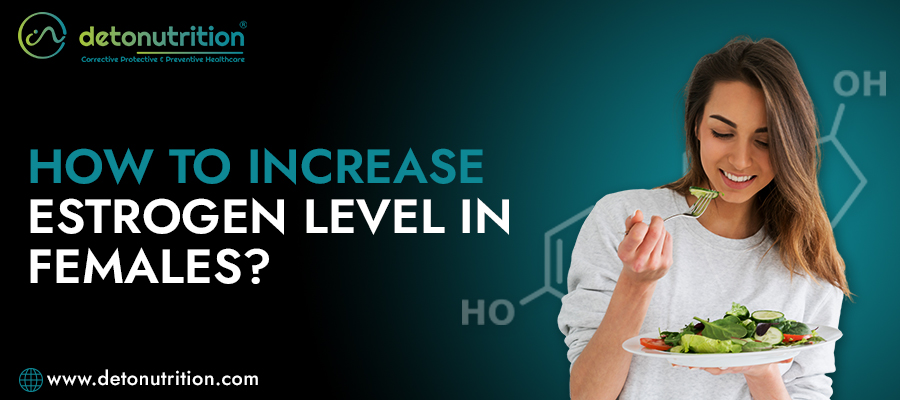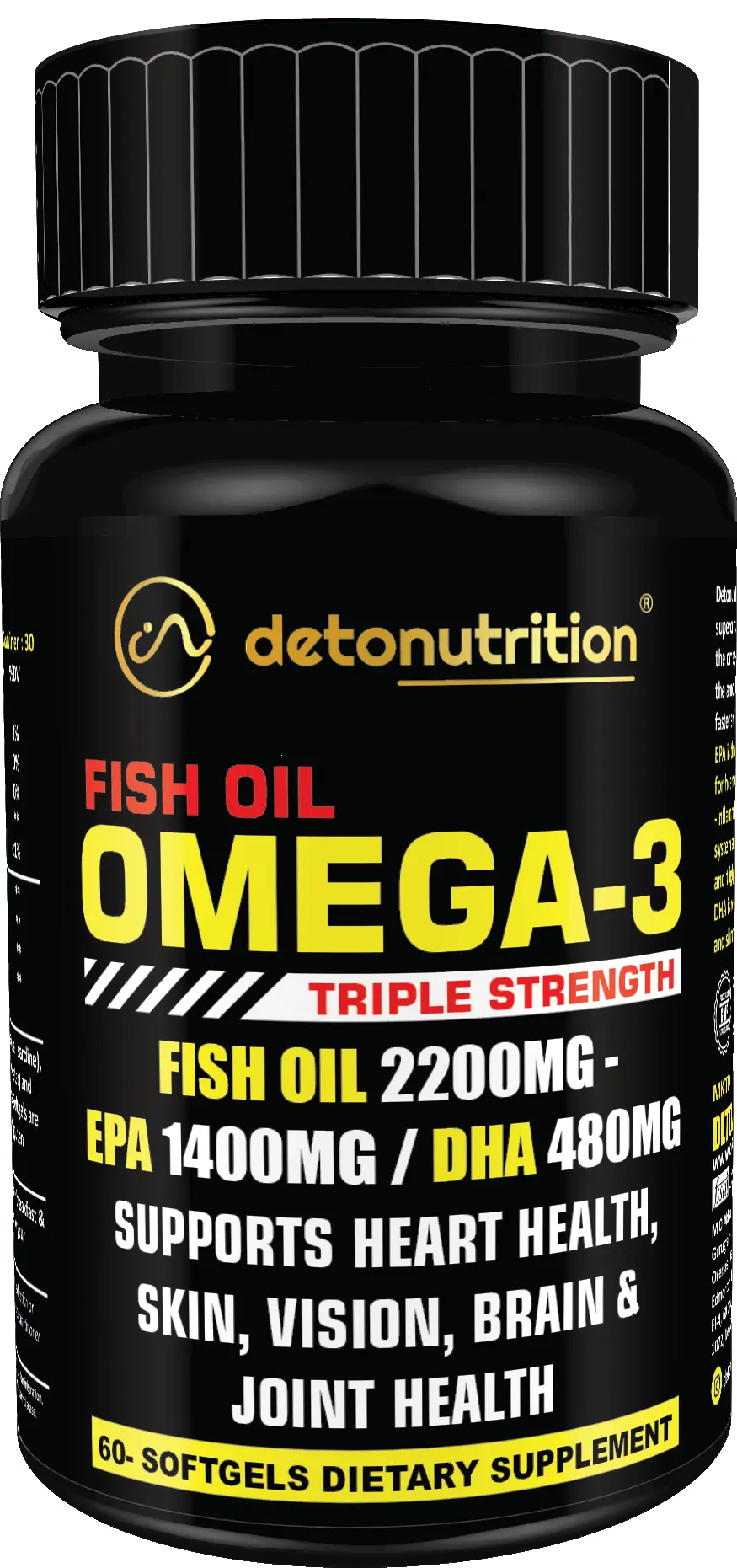How To Increase Estrogen Level In Females?
Estrogen is a crucial hormone that plays an essential role in women health. And if you're curious about how it works and how you can increase your estrogen levels, you've come to the right place. This blog is all about how to naturally support estrogen levels through lifestyle changes, and dietary approaches including herbal supplements. This will encourage your body's natural estrogen production. Read on to know the practical strategies, from dietary tweaks to lifestyle habits that you can incorporate to potentially support your healthy estrogen balance and overall well-being.
Understanding Estrogen and Its Importance
First let’s understand the importance of estrogen. Well, as you all know estrogen is a group of hormones that play a crucial role in the female body. The primary estrogen produced by the ovaries which is known as estradiol. Estriol and estrone are other forms of estrogen, present in different amounts and with varying functions. Estrogen is important for:
Reproductive Health
It regulates the menstrual cycle, ovulation, and manages the development and maintenance of female reproductive organs.
Heart Health
Estrogen has a protective effect on the cardiovascular system, helping to maintain healthy cholesterol levels and blood vessel function.
Bone Health
Estrogen helps maintain bone density by inhibiting bone resorption as low estrogen can lead to osteoporosis.
Brain Function
Estrogen influences mood, memory, and cognitive function.
Skin and Hair Health
Not just brain health it also contributes to skin elasticity and hydration, as well as hair growth and thickness.
Symptoms of Low Estrogen:
Irregular or absent periods
Estrogen plays a key role in regulating the menstrual cycle. When levels are low, ovulation may not occur regularly, leading to irregular periods or the complete cessation of menstruation. Factors like excessive physical activity, chronic stress, or eating disorders are causes of irregular or absent periods.
Hot flashes
These sudden sensations of intense warmth, often accompanied by sweating and a flushed face, are thought to be due to estrogen's influence on the body's temperature regulation center in the brain.
Vaginal dryness
Estrogen also helps in maintaining vaginal tissue lubrication and thickness. Lower levels can lead to dryness, which can also cause discomfort during intercourse.
Night sweats
Similar to hot flashes, night sweats occur during sleep and can be disruptive which often leaves you feel damp and uncomfortable.
Fatigue
Low estrogen can contribute to feelings of tiredness and a lack of energy, even with adequate rest or sleep.
Mood changes
Fluctuations or low levels of estrogen can affect neurotransmitters in the brain, potentially leading to increased irritability, anxiety, or even symptoms of depression.
Difficulty concentrating
Some women with low estrogen report problems with focus, memory, and overall cognitive function.
Brittle bones or bone loss
Estrogen is vital for maintaining bone density. Over time, low estrogen can lead to a decrease in bone mass, increasing the risk of osteoporosis and fractures.
Causes of Low Estrogen:
Menopause
This natural biological process marks the permanent end of menstruation and occurs when the ovaries significantly reduce their production of estrogen, typically around the late 40s or early 50s.
Premature ovarian insufficiency (POI)
Premature ovarian insufficiency is also known as premature menopause. This occurs when the ovaries stop functioning normally before the age of 40, leading to a significant drop in estrogen levels.
Polycystic ovary syndrome (PCOS)
While PCOS is often associated with high androgens, it can also involve imbalances in other hormones, including lower levels of estrogen in some cases, affecting ovulation and menstruation.
Certain medical treatments
Treatments like chemotherapy and radiation therapy, particularly when targeted at or near the pelvic area, can damage the ovaries and impair their ability to produce estrogen.
How Diet Can Influence Estrogen Levels?
Some foods contain plant compounds called phytoestrogens that can act a little like estrogen in your body. Phytoestrogen are not as strong as your own estrogen or hormone therapy, but eating foods that contain phytoestrogen might offer some support. Following are some foods that you can take to increase your estrogen levels.
Dried Fruits
Dried fruits like dates, prunes, and dried apricots contain some phytoestrogens. However, eat them in moderation due to their sugar content.
Soy Products
Soy products like tofu, tempeh, edamame and soy milk contain isoflavones. Isoflavons might have a slight estrogen-like effect when estrogen is low, and a slight opposite effect when estrogen is high. Whole soy foods are the best to add in your diet.
Sesame and Flaxseeds
Both theses seeds contain lignans, which your gut can turn into weak estrogen-like compounds. You can add sesame seeds are easy to add to food.
Legumes
Legumes like chickpeas, lentils, and beans have isoflavones and other good nutrients that can help with overall hormonal balance.
Berries
Berries like strawberries, raspberries, and blueberries are great for overall health and might indirectly help with hormonal balance, even if they aren't high in phytoestrogens.
Cruciferous Green Vegetables
This involves broccoli, spinach, kale and lettuce.These vegetables help your body process and get rid of excess estrogen, which can lead to a healthier balance.
Healthy Fats
Adequate intake of healthy fats, such as monounsaturated and polyunsaturated fats which are found in avocados, nuts, seeds, olive oil, and fatty fish is essential for hormone synthesis.
Protein
Sufficient protein intake is necessary for various bodily functions, including the production of hormones and their binding proteins.
Complex Carbohydrates
Choosing complex carbohydrates like whole grains and vegetables over refined carbohydrates helps maintain stable blood sugar levels, which can impact hormonal balance.
Vitamins and Minerals
Vitamins and minerals play a role in hormone production and regulation. Ensuring a diet rich in fruits and vegetables helps meet these micronutrient needs. You can also take herbal supplements to meet your vitamins and minerals needs.
The main takeaway is that including a variety of these foods in your diet might offer some subtle estrogen-like effects or help with overall hormonal health. However a diet that supports overall health is crucial for optimal hormone production. This includes:
Lifestyle Factors That Have a Significant Impact on Hormonal Health
1. Regular Exercise
Regular physical activity can help balance hormones but make sure not to over-do anything as excessive intense exercise can sometimes lower estrogen levels.
2. Manage Stress
Chronic stress can disrupt hormonal balance. Incorporate relaxation techniques like yoga, meditation, or deep breathing exercises to manage stress.
3. Adequate Sleep
Aim for at least 7-9 hours of quality sleep per night, as sleep is crucial for hormone regulation.
4. Limit Alcohol Consumption
Excessive alcohol can interfere with hormone levels so, try to quit alcohol consumption. If you are unable to quit then try to limit the consumption of alcohol.
5. Quit smoking
Smoking can also accelerate the decline in estrogen levels and that’s why quitting smoking is the best decision that you can take to increase your estrogen levels.
Not just that but taking estrogen boosting supplements can also positively impact on your hormonal health. These supplements not only increase your estrogen levels but also nurture and strengthen your reproductive organs.
Conclusion:
Maintaining healthy estrogen levels is the key for women's well-being, impacting various bodily functions. You can naturally support estrogen through a balanced diet rich in phytoestrogens and essential nutrients, alongside a healthy lifestyle including regular exercise, stress management, sufficient sleep and herbal supplements. Avoid smoking and excessive alcohol consumption for better results.

We have a vision to take good care of your health and nutrition with products which are made from research and experience. Our team is technical as well as experienced so that we can deliver you the best products for your health and wellness.
Stay Fit, Stay Healthy And Stay Happy Always!
QUICK LINKS
CATEGORIES
Subscribe Us
Subscribe to Dr. Aaditya's Health Blog Email Newsletter
© Copyright - Detonutrition. All Right Reserved 2026.




